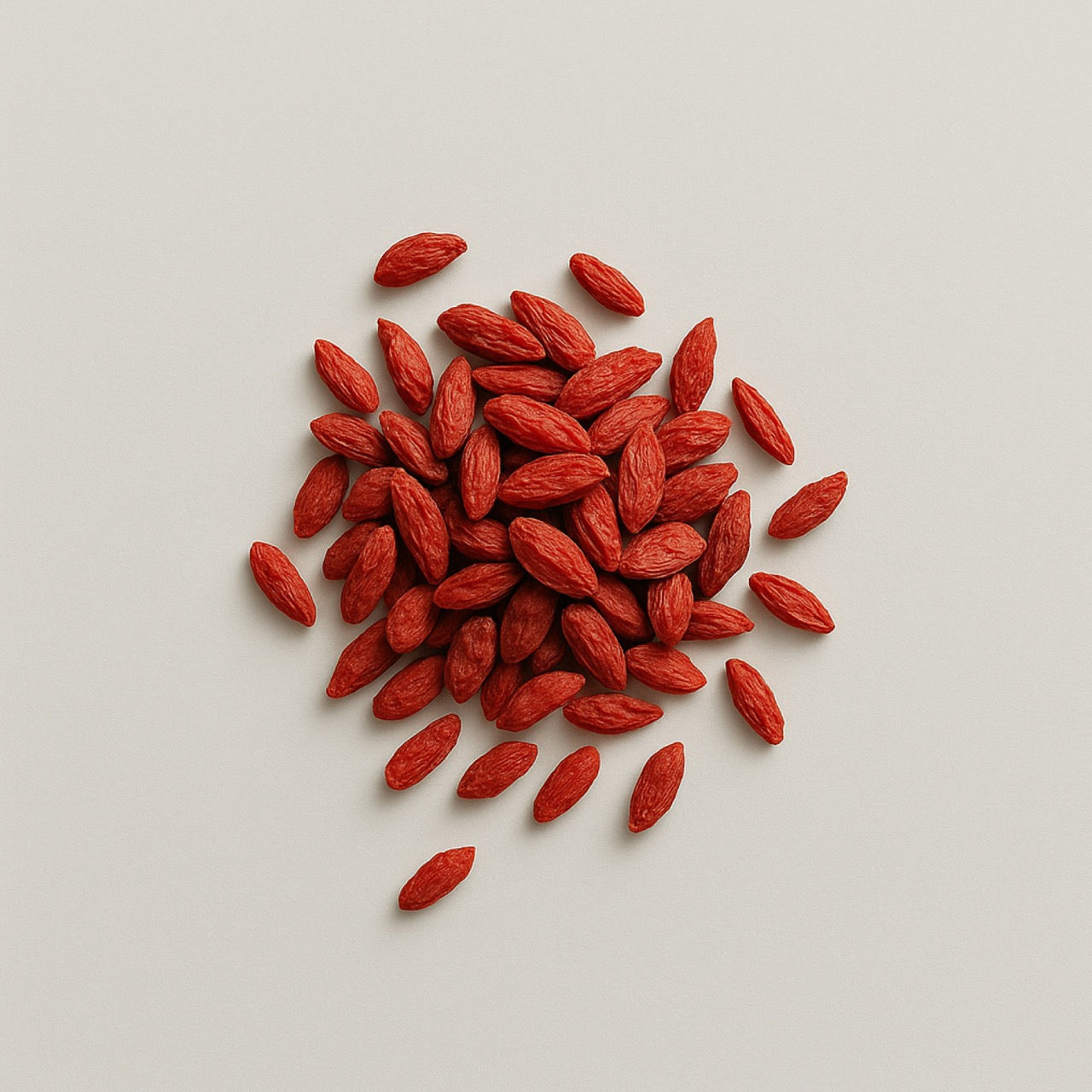Goji berry
Lycium barbarum

Goji berry is the fruit of the Lycium barbarum plant, traditionally dried and used in teas, snacks, and dietary supplements. It is native to Asia and has a bright red colour.
Products:
The Anti-Inflammatory Properties of Goji Berries
The bioactive constituents in goji berries, such as polysaccharides and flavonoids, have been studied for their anti-inflammatory effects. These compounds may help modulate inflammatory pathways in the body, which could be relevant in the context of inflammatory conditions such as arthritis.¹
Do Goji Berries Help with Immunity?
Rich in immune-supportive nutrients, goji berries provide vitamin C and a range of antioxidants that may contribute to normal immune system function. These compounds assist in protecting cells from oxidative stress and support the body’s natural defence mechanisms.
Goji Berry and Skin Health
The antioxidant content of goji berries—including vitamin C—has been studied for its potential role in protecting skin cells from oxidative damage induced by environmental stressors such as UV radiation and pollution. Vitamin C also contributes to normal collagen formation, which is important for maintaining skin structure and may support skin elasticity and hydration.² ³ ⁴ ⁵
Is Goji Berry Good for Your Eyes?
Carotenoids found in goji berries—especially zeaxanthin—have been shown to accumulate in the retina, where they help filter harmful blue light and protect ocular tissues from oxidative damage. This activity may play a role in maintaining healthy vision and supporting eye health as part of normal ageing.⁶
Are Goji Berries High in Antioxidants?
Goji berries contain a broad spectrum of antioxidants, including vitamin C, carotenoids, and flavonoids. These compounds contribute to the neutralisation of free radicals, thereby helping to reduce oxidative stress—a factor associated with the development of various chronic health conditions—and supporting overall cellular health.⁷













